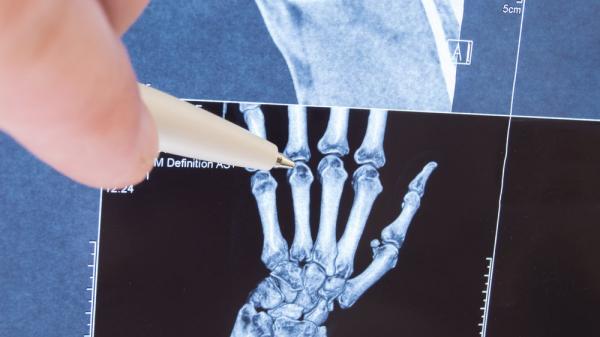
Sometimes the physical and emotional symptoms of arthritis can affect many different aspects of your life, including your relationships and sex life. However, arthritis does not have to signal the end of an intimate relationship. You can learn ways to make the relationship work.
Will arthritis change our relationship?
Most couples – whether they have arthritis or not – go through phases in their relationship when their sex life is less exciting or satisfying than it was. There may be physical reasons for this, but emotional factors and stress often play a part. Emotional upsets, work or money worries can all affect the balance of a relationship.
Arthritis can present several challenges in a relationship:
- Pain and fatigue may reduce your enjoyment of sex and other activities and interests that you share with your partner.
- Arthritis may mean that you can’t always manage the household jobs you usually do, or you may need help with them.
- If your arthritis affects your work, it may lead to financial worries.
- Having arthritis may affect your mood and self-esteem.
- Your partner may be concerned about how your arthritis is affecting you.
Although your relationship may change because of arthritis, it doesn’t have to be a negative change. Many couples find that they become closer by discussing things openly and that their relationship is stronger as a result. Talk about the changing situation and any challenges that you face so you can arrive at a solution that’s right for both of you.
For example, most people with arthritis prefer to keep as much independence as possible, so a partner taking on the role of carer will need to find the right balance between providing help and support without being overprotective. It can be difficult for a caring partner to recognise that their help isn't always wanted.
Some couples find it difficult at first to talk openly, so you need to create a comfortable, relaxed time to talk. But once open communication has started it can be a great relief for both partners.
What if I'm not in a relationship?
Some people with arthritis lose their self-confidence and worry about forming new relationships, especially if they have swollen joints or other visible signs of the condition. But most relationships develop gradually and depend upon shared interests more than physical considerations.
Keep up your social contacts as much as possible and think of new activities to try, especially if there are some that you now find difficult.
Will having sex affect my arthritis?
Sex itself won’t make your arthritis worse. But because moving a joint affected by arthritis can be painful and because sex can be physically demanding, it may cause discomfort, especially if your hips or back are affected. You can try different positions which may be more comfortable for you and your partner. Or you can take an analgesic (pain relieving medication) about an hour before sex, to help relieve any associated pain.
Will arthritis affect my sex life?
There are a few that arthritis can affect your sex life:
- Arthritis can affect your mood and general well-being which, in turn, can affect your sex drive.
- Swollen joints can affect your self-confidence and make you feel less attractive.
- Fatigue associated with arthritis can reduce your sexual desire. Your healthcare team can advise you on ways of managing fatigue and conserving energy – more information is available in our fatigue section.
- Painful joints may make it more difficult to move into a position you’re used to.
- Arthritis sometimes leads to a dry vagina, which may make sex uncomfortable. Water-based lubricating gels such as KY Jelly may help. You can get these from a pharmacy, supermarket or online. Oil-based lubricants such as Vaseline or baby oil may irritate your skin or damage condoms. If you're going through the menopause this can cause vaginal dryness – discuss this with your doctor as treatment is available.
Sex isn't equally important to all couples, but if it has been important to you and your partner then you should try to find ways to meet both your needs.
Most people with arthritis find that their pain can vary from day to day, so you may want to make the most of opportunities on your better days. If you experiment with different positions, you should be able to find some that are more comfortable for your joints.
Will medications affect my sex life?
Most medications commonly used to treat arthritis are unlikely to affect your sex life, although steroids can sometimes reduce sexual desire or cause temporary impotence. You should discuss your medications with your doctor if you think they may be affecting you in this way.
Medications commonly used to treat arthritis shouldn’t reduce the effectiveness of the contraceptive pill, but check with your doctor if you’re not sure.
Will my joint replacement affect my sex life?
If you’re having a joint replacement operation, the pain from the affected joint may already be interfering with your sex life. The operation may improve your sex life, although it will take some time to recover and for the wound to heal. It's quite common to feel nervous about sex after an operation, but most people feel able to start having sex again about six weeks after the operation.
Following a hip replacement, you need to take care with certain movements for at least 12 weeks after the operation because there’s a risk of dislocating the new joint. These are, in particular, bending the leg up (flexion) and moving one leg towards the other (adduction). It’s best for you to be on the bottom and your partner on top. You also won’t be able to kneel for six weeks after the operation and you’ll have to keep your hips straight, so this may affect some of the positions you can use.
After a knee replacement, you won't be able to kneel for six weeks after the operation, so this may affect some of the positions you can use.
Following a shoulder or elbow joint replacement, you should avoid any forceful or extreme movements of the arm (particularly behind your back), locking it one position or taking weight through the arms. Care should always be taken after a shoulder or elbow joint replacement as the joints can remain a little unstable indefinitely.
When you have the operation your healthcare team will be able to tell you which movements to avoid. Make sure you ask if you’re unsure about anything – they’ll have been asked the same question many times before.
How can we overcome difficulties with sex?
Below are just a few ideas on how to overcome any issues that arthritis may cause for your relationship:
Keep active
Your sex drive and enjoyment are generally greater if you feel fit and active. Exercising will help you keep up your muscle strength and tone and the range of movement in your joints.
Talk about it
Be prepared to talk openly with your partner about your concerns, whether it’s a physical or emotional problem. Fear of pain may make you apprehensive about sex, but your partner may also be scared of hurting you. Sometimes worries like this lead couples to avoid sex and physical intimacy.
Let your partner know if something is uncomfortable, but tell them what feels good too. If things don’t get better after you’ve talked to each other, consider involving someone from a professional organisation. Your doctor can refer you.
Plan ahead
When pain is a problem, take painkillers about an hour before having sex. This may not seem very spontaneous but it’s worthwhile if it makes sex more comfortable.
Your joints may also feel more comfortable after a hot bath or shower – why not share one with your partner?
Our information on fatigue can give you more tips about planning and pacing yourself to help you keep doing activities you enjoy.
Relax
Massage can help relax joints and muscles, and this can form part of foreplay.
Try a different position
There are many positions you can try with one or both partners standing, kneeling or sitting. If one position puts a strain on your joints, it’s worth experimenting with others. Or try using cushions, pillows or different pieces of furniture to support you.
Finding positions that are both comfortable and rewarding will take patience and understanding from you both, but if you work together, you have the potential to reconnect with each other and develop a deeper level of intimacy.
In particular, during this time of trial and error try not to lose your sense of humour as it’s important to ensure you have some fun along the way!
Who else can I talk to about sex and arthritis?
Every couple has times when their relationship is less than perfect. Having arthritis can create additional worries. Help is available if you feel that your relationship is changing in a way that you’re unhappy with or if you’re unable to resolve things between you.
Try to discuss problems with someone you feel comfortable with, such as a friend or someone else with arthritis. You can speak to your GP for professional advice or, if you attend a clinic, you may feel more at ease speaking to your rheumatology nurse or another member of the team.
Counselling or speaking to a psychologist may also be useful.
Will we be able to have a baby?
There’s no reason why your arthritis should prevent you from having children, although it may require extra planning and patience. Some of the medications used to treat arthritis can be taken safely before and during pregnancy, but others should not be used during pregnancy or for a time before trying to conceive.
If you or your partner has arthritis, make it a priority to talk to your rheumatologist for advice at least six months before you start trying to conceive.











